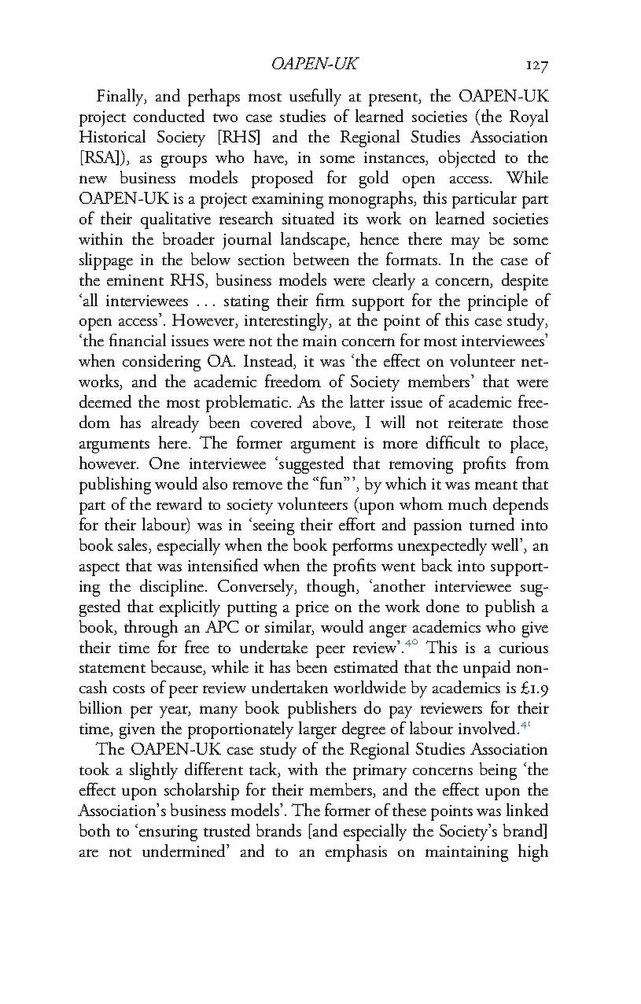Finally, and perhaps most usefully at present, the OAPEN-UK
project conducted two case studies of learned societies (the Royal
Historical Society [RHS] and the Regional Studies Association
[RSA]), as groups who have, in some instances, objected to the
new business models proposed for gold open access. While
OAPEN-UK is a project examining monographs, this particular part
of their qualitative research situated its work on learned societies
within the broader journal landscape, hence there may be some
slippage in the below section between the formats. In the case of
the eminent RHS, business models were clearly a concern, despite
‘all interviewees . . . stating their firm support for the principle of
open access’. However, interestingly, at the point of this case study,
‘the financial issues were not the main concern for most interviewees’
when considering OA. Instead, it was ‘the effect on volunteer networks, and the academic freedom of Society members’ that were
deemed the most problematic. As the latter issue of academic freedom has already been covered above, I will not reiterate those
arguments here. The former argument is more difficult to place,
however. One interviewee ‘suggested that removing profits from
publishing would also remove the “fun”’, by which it was meant that
part of the reward to society volunteers (upon whom much depends
for their labour) was in ‘seeing their effort and passion turned into
book sales, especially when the book performs unexpectedly well’, an
aspect that was intensified when the profits went back into supporting the discipline. Conversely, though, ‘another interviewee suggested that explicitly putting a price on the work done to publish a
book, through an APC or similar, would anger academics who give
their time for free to undertake peer review’.40 This is a curious
statement because, while it has been estimated that the unpaid non-cash costs of peer review undertaken worldwide by academics is £1.9
billion per year, many book publishers do pay reviewers for their
time, given the proportionately larger degree of labour involved.41
The OAPEN-UK case study of the Regional Studies Association took a slightly different tack, with the primary concerns being ‘the effect upon scholarship for their members, and the effect upon the Association’s business models’. The former of these points was linked both to ‘ensuring trusted brands [and especially the Society’s brand] are not undermined’ and to an emphasis on maintaining high
